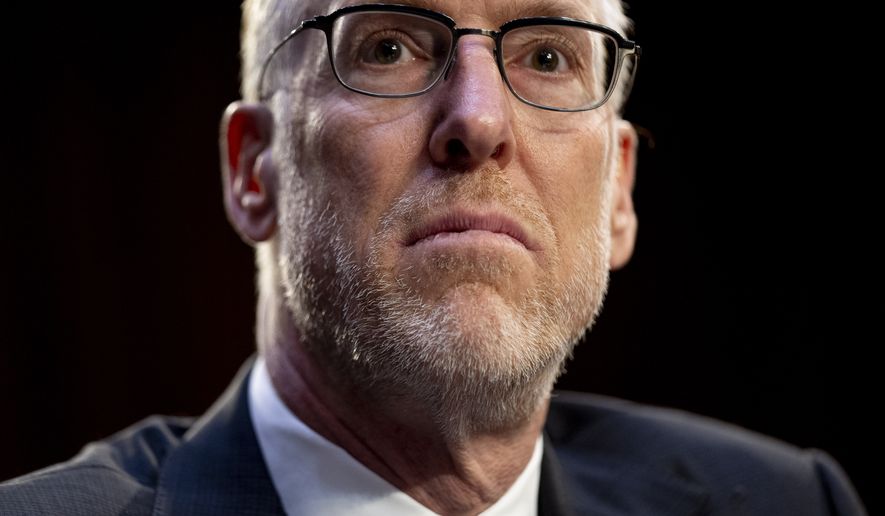Americans’ fury at Ticketmaster spread to Capitol Hill on Tuesday, but don’t expect the lawmakers’ outrage to cause ticket prices to drop or to quell anger from Taylor Swift’s fans over the bungled sales for her tour.
Long wait times, high prices and disgruntled artists have swirled around Ticketmaster and the live events industry in the aftermath of COVID-19 pandemic restrictions that prevented people from going to sports games and concerts.
Ms. Swift’s fans and other frustrated eventgoers received an apology from the ticket distributor’s parent company when Live Nation President Joe Berchtold said he was sorry in testimony Tuesday to the Senate Judiciary Committee.
Both Democrats and Republicans harbor animosity about Ticketmaster’s actions. However, Democrats appeared more insistent on creating new antitrust laws affecting the ticketing industry.
Ticketmaster merged with Live Nation in 2010. Critics say the merger empowered the company to dictate high prices while offering poor service to both fans and entertainers.
Sen. Amy Klobuchar of Minnesota, the Democratic leader of the judiciary committee’s antitrust panel, said Tuesday’s hearing was designed to raise public awareness, help federal investigators who are rumored to be targeting Ticketmaster and lead to new legislation.
“We can do something,” Ms. Klobuchar said at the hearing.
Republicans are likewise angry but did not appear sold on new legislation as the singular solution. Sen. Mike Lee of Utah, the antitrust panel’s top Republican, said Congress ought to first debate whether the initial federal order governing the Ticketmaster merger was sufficient.
“The Ticketmaster/Live Nation merger is yet another demonstration that the biggest problem in antitrust is not outdated laws or a need for new laws, but a failure to enforce the laws we already have,” he tweeted.
Senators debated the wisdom of antitrust policy and peppered Mr. Berchtold with criticism.
Sen. John Kennedy, Louisiana Republican, said the hearing missed the point amid Ticketmaster critics arguing for antitrust action and others seeming to say Live Nation made too much money and they wanted a cut.
He urged everyone involved to think of the customer who he said deserved a break, which could come in the form of making tickets non-transferable to prevent scalping, capping fees or paying entertainers a fair sum.
“Not every kid can afford whatever it is, $500 to go see Taylor Swift and I’d like to see Ms. Swift or Mr. Springsteen or some of the other major artists step up,” Mr. Kennedy said.
Witnesses struggled to answer who is responsible for high prices. Mr. Berchtold sought to shift the blame from Ticketmaster, saying a band or artist sets the price, while the venue controls corresponding fees.
“Of approximately 4,000 venues in the United States, per Pollstar, Live Nation operates approximately 200, so roughly 5% of the venues in the country,” Mr. Berchtold said.
“Are they the biggest?” interjected Senate Judiciary Committee Chairman Richard J. Durbin, Illinois Democrat.
“No, sir, they are generally not the biggest,” Mr. Berchtold replied. “The biggest tend to be the sports venues — the arenas, the stadiums controlled by the sports teams or the owners of the sports teams.”
• Ryan Lovelace can be reached at rlovelace@washingtontimes.com.




Please read our comment policy before commenting.